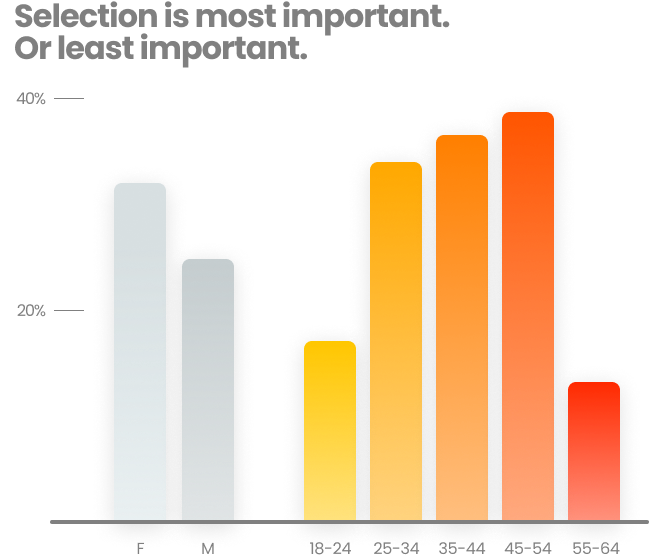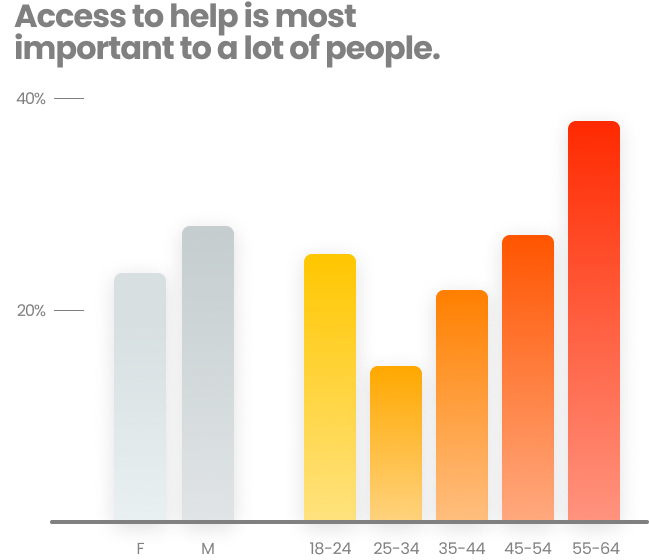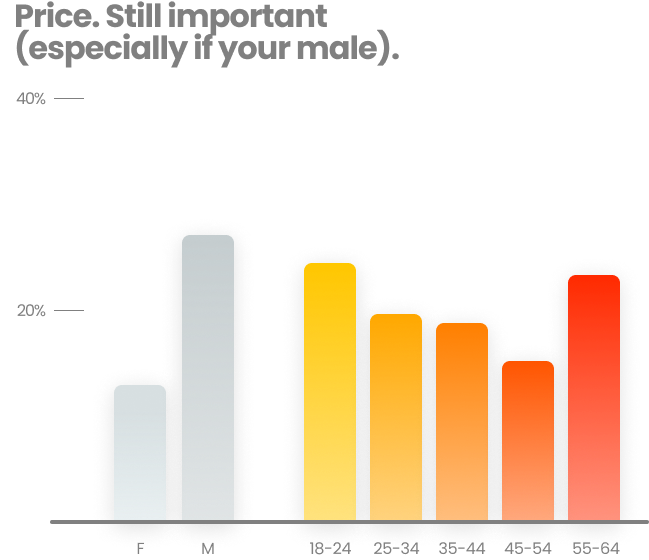Your customer’s most important consideration? Hint: it’s not the price.
In October, 6L Inc / ZippyAssist undertook a small but interesting survey. We wanted to know: how often did people spend money on self-service retail, what was important when using self-service, and what would make them spend more.

Learning from customers in self-service and unattended retail is a challenge. Even today, with the adoption of sophisticated technology there exists a gap when compared to other forms of shopping. Unlike traditional retail, there isn’t the same opportunity to chat with customers and learn how we might serve them better. And with online retail there are techniques to profile customers based on their on-site behaviour – what items they look at, what content they dwell on, for example.
With ZippyAssist, we’re focused on closing that gap, and while it's tough to beat chatting with customers, technology and data will help us on that journey. So will taking opportunities to learn from customers any way we can. That’s what this little survey was all about. And why we want to share what we learned with you in a short 3-part blog series.
Part one: customer attitudes.
If not price. What?
We asked our survey participants, “What is most important when using the service?” (service being one or more of: vending machine, self-service market, office coffee service, or other unattended retail service), and asked them to choose the single most important item from a short list of options (price, selection, reliability, help if something goes wrong, or other).
The answer: selection. But (as the saying goes): wait … there’s more.
While the highest overall score of all options was selection (28% of respondents) it was the least important for many shoppers. The score was heavily skewed by people aged 45-54, 39% of which chose selection. But, here’s the thing: people are complicated, and research can uncover interesting insights. For people aged 55-64s (13%), selection is the least important. It was also least important for 18-25s (17%).

So while selection is super important to purchasers aged 25-54 (in fact, the most important of the options), it is the least important to older people, and to younger people.
So the next most important must be price, right? Wrong.
Help is more important than price.
The availability of help was second most important, with reliability very (very) close behind. You could call it a draw by rounding both to the nearest whole number, 25%.
But the story behind these numbers is the variation between gender. Help was the single most important of all options for males (27%), but that dropped to 24% for females. Females placed a higher importance on reliability with 31%. Reliability was also the most important consideration for customers aged 18-25s (33%) and those aged 55-64 (38%). But the relatively consistent score for help across all ages and genders put it a nose ahead of reliability.

Price is the least important consideration. Or is it?
We need to be careful. Price was second most important for males at 27% – just behind help, which was top with 28%. So pricing is important to males. (Incidentally, pricing was woefully last for females with only 13% selecting it as most important – lagging behind the next most important by more than 10 percentage points).
But we need to be careful (oh, I just said that) – because intuitively we feel it’s important. We feel it in our gut. Given two choices instead of just one, you’d expect price to feature strongly in that second choice. But when push comes to shove people are drawn more to individuality (choice via selection) and trust (reliability and availability of help). Price – the more rational decision – is left standing early in this game of musical chairs.

So what's the answer?
This is where I pitch you ZippyAssist. But before that, let's look at the options.
- Enhance selection. That is: buy more stock. But what stock? What do you add to your range, or how do you mix it up? Will I need to add more equipment to enhance selection? Will increased sales make up for the increased investment? And what if my customers skew older and/or younger? Selection isn't important to these groups.
- Be more reliable. Hmmm ... what does that mean? Newer, modern equipment? Sounds expensive. Or is it presentation – fancy lighting? Brand? Could the logo my 12 year old nephew designed be putting people off? Is the machine well stocked – a half empty machine probably makes people wonder if that candy bar at C18 is from the 80s?
- Pricing? No. Yes. Maybe. Put it this way, cheaper isn't a show stopper. But it probably isn't a game winner.
We built ZippyAssist to help businesses help people in self-service environments. We do that by making it super simple for customers to access help if they need it. This survey, while small (and we're not data scientists), is useful nonetheless because it helps inform something we instinctively understand: people want to be treated like people, regardless of the environment or situation. They want to be offered help when they need it. And they want to feel that a business will reciprocate the trust they – as a customer – are showing them by spending their money with them. Perhaps that's what being reliable means?
In our next post (coming soon) – shoppers will give themselves permission to spend more, with your (hint) help.
Learn out more about ZippyAssist and how we help companies help customers.
